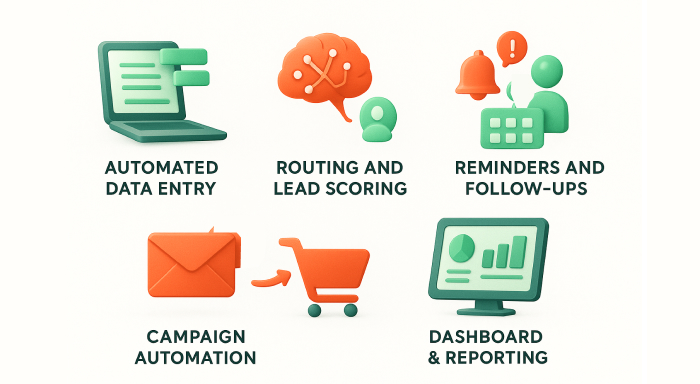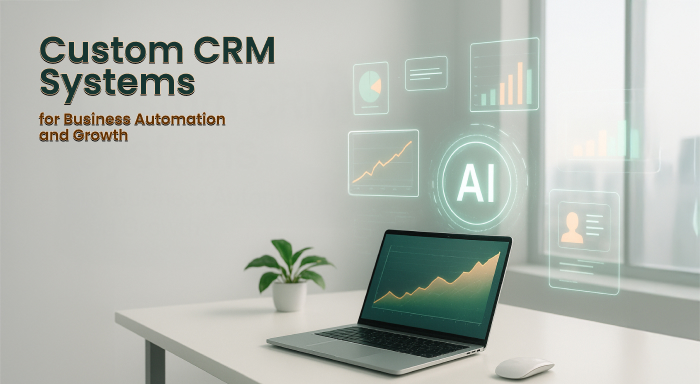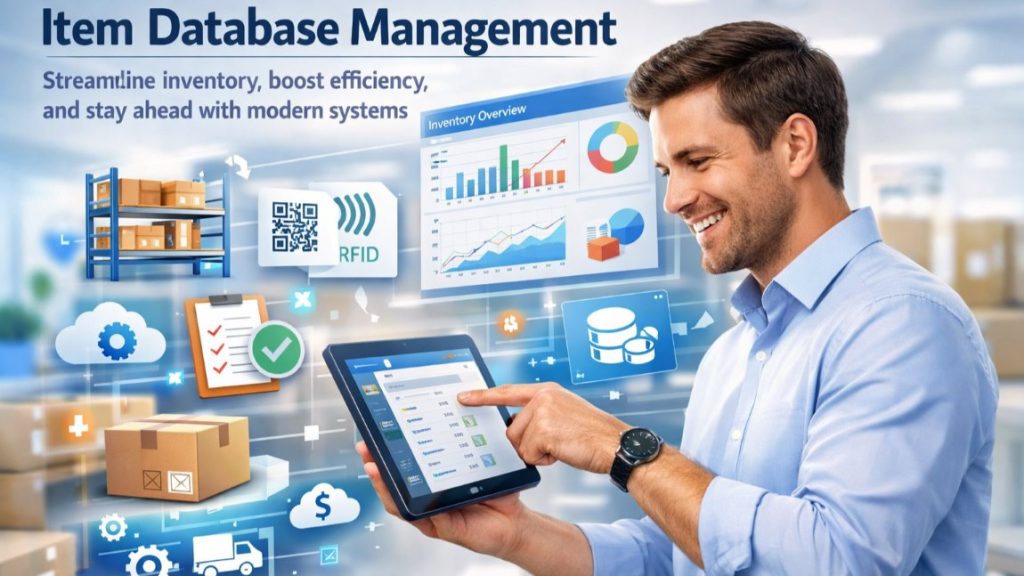Automating Success in any organization begins once it understands that strong customer relationships are the backbone of growth. Thus, it is not a surprising fact that CRM platforms have become
Automating Success in any organization begins once it understands that strong customer relationships are the backbone of growth. Thus, it is not a surprising fact that CRM platforms have become an indispensable tool for marketing and sales departments, enabling them to consistently monitor leads, handle interactions, and remain organized.
You will be glad to know that CRM platforms are only getting more accurate, smarter, and effective at improving customer relationships.
To remove the limitations of conventional CRM platforms, bespoke software driven by AI technology is allowing businesses to enhance sales, save time, and ensure more tailored experiences for customers than ever before.
Proceed to read through the following sections to understand how smart and custom CRM platforms can boost customer relationships and ensure lasting growth for businesses.
Understanding Intelligent CRM Platforms
A powerful CRM platform is a sophisticated customer relationship management solution that leverages AI, automation, and data analytics to go beyond conventional contact management.
Unlike basic CRMs that just organize and save data, intelligent CRMs can automate routine tasks, forecast customer behavior, customize interactions, and ensure real-time insights. As a result, you get a platform that not only saves businesses time and improves productivity but also boosts customer relationships.
What Are the Limitations of Conventional CRM Platforms?
One of the inescapable truths is the fact that conventional CRM platforms are now becoming obsolete. Organizations that do not adopt sophisticated platforms might end up wasting resources unnecessarily. You might ask why.
This is because conventional systems depend greatly on the manual input, leaving marketing and sales teams drowning in time-consuming tasks such as updates, data entry, and reporting. Without artificial intelligence, such systems cannot analyze the behavior of customers, forecast buying patterns, or automate follow-ups—they just focus on the organization and storage of data.
And we cannot just discuss the platform’s limitations without talking about the scalability needs of the businesses. As companies experience growth, they shy away from rigid or one-size-fits-all CRM. They prefer a solution that adjusts seamlessly with their unique workflows or integrates smoothly with existing systems. The absence of flexibility in conventional CRMs generally leads to missed opportunities, inefficiencies, and frustration among team members who think of a system as more of a burden than an advantage.
This is not to mention the fact that conventional platforms are becoming useless. However, they do not have the essential features that advanced CRM platforms have. We will discuss this further below.
How Advanced CRM Platforms Aid in Automating Tasks

Do you often feel like your to-do list never really ends? Does it overwhelm you to the point that you cannot concentrate on one task?
A lot of marketing and sales professionals can also relate. However, advanced CRM platforms are transforming this scenario. Here is how they are changing.
- Automated Data Entry: Advanced platforms have capabilities to capture leads automatically from distinct sources like forms, emails, chats without any manual input.
- Routing and Lead Scoring: AI ensures lead scoring as per factors such as size of the company or interaction history and assigns them automatically to the available sales representative.
- Reminders and Follow-ups: Advanced CRM platforms schedule calls, emails, and campaigns so that no leads get lost because of missed follow-ups.
- Campaign Automation: Sophisticated platforms can trigger tailored marketing campaigns as per particular customer actions, like abandoned cart emails.
- Dashboard & Reporting: Intelligent platforms create real-time analytics without manual work on spreadsheets.
Why Is This Important in Marketing and Sales?
An advanced CRM platform looks to be an indispensable asset for the sales and marketing team. Right?
Yes, it is. However, let us delve a little deeper into how organizations can actually benefit from this:
- Saves Time: Teams spend a lot less time on administrative functions and a lot more time on creating campaigns and getting deals done. Through automation of scheduling, data entry, and follow-ups, advanced CRM solutions ensure marketing and sales professionals save hours every week to focus on strengthening relationships and strategy.
- Enhances Accuracy: Automation minimizes manual error in reporting and data entry. This leads to more dependable analytics, cleaner customer data, and less missed opportunities occurring because of mistakes that could have been avoided quite easily.
- Improved Customization: AI-based insights make sure customers get the optimized message at the perfect time. Instead of emphasizing too much on the one-size-fits-all outreach, businesses can ensure personalized experiences that make sure prospects feel valued and understood.
- Enhances Productivity: Representatives can manage more opportunities and leads with minimum effort. By simplifying workflows, teams can enhance the output without over-exerting themselves, ensuring quicker deal cycles and efficient pipelines.
- Ensures Growth: Prompt responses and advanced engagement often lead to strengthened customer relationships and higher rates of conversion. Over the course of time, this transforms into lasting business growth driven by trust, loyalty, and repeat sales.
The Significance of Personalization and Bespoke Solutions
It is important to understand that every business is unique. Their capabilities, needs, infrastructure, and objectives are unique. This implies that the tools they should purchase, or build must be tailored to their requirements. Instead of adopting your workflows to mitigate the limitations of the system, a customized CRM can be developed around industry specifications, particular processes, and customer journeys.
Generic features generally fail to provide support to lasting goals, which is why numerous businesses prefer to work with a CRM development agency to design a CRM that resonates with their precise requirements. The development process generally starts with understanding the pain points or workflows, followed by developing a personalized platform that smoothly integrates with your present tools and scales with your business growth.
Irrespective of whether it is demanding compliance needs, unique sales pipelines, or purpose-built features that off-the-shelf solutions do not offer, bespoke solutions provide you the versatility to simplify processes, enhance efficiency, and ensure experiences that align with your target audience.
Overcoming Problems in CRM Integration
Integrating a CRM is a complex process that does not come without challenges. One of the most prevalent hurdles is reluctancy to transition to a new CRM environment. There are a lot of teams who become used to legacy systems and present workflows and remain reluctant to accept a new system. To overcome this, it is important for businesses to emphasize training and communication. Educating about lasting advantages of advanced CRM solutions such as enhanced customer relationships and time savings is extremely important.
Another challenge teams might face is complexity and cost. A lot of companies get anxious about high initial investment or workflow disruption that can happen during implementation. What is important here is to begin with a phased rollout, making sure that CRM is smoothly incorporated with present tools and personalized to adjust to unique workflow.
While higher level of CRM customization can lead to higher initial expenses, but a powerful CRM tool powered with valuable extensions can ensure a strong ROI as they can enhance sales, improve efficiency, and can align smoothly with your business requirements.
With the right planning, support, and communication, companies can overcome these obstacles and enjoy a smarter system with more advanced capabilities.
To manage the technical complexities of CRM integration, it is also advisable to seek professional CRM integration services.
Final Thoughts
When custom CRM platforms get improved with sophisticated AI capabilities, they can take business growth to another level.
Irrespective of whether you are interested in automating routine tasks, creating real-time insights, customizing campaigns flexibly, or doing all of the above, a customized AI-driven CRM can make that possible effortlessly.
By minimizing manual work or simplifying operations, businesses can free up a lot of their time to shift focus on innovation, strategy, or customer engagement.
While it is true that CRM integration does pose evident challenges, the long-term prospects and ROI potential overshadow the upfront investment and initial hurdles. Companies that incorporate automation and customization will not only observe measurable impacts on sales and efficiency but also get a competitive edge in the future marketplaces.
So, you must ask yourself: Can your organization really benefit from CRM integration and enhanced automation? What does it mean for your business if customer communications become faster, smarter, and more customized?
Respond to this article with emojis






